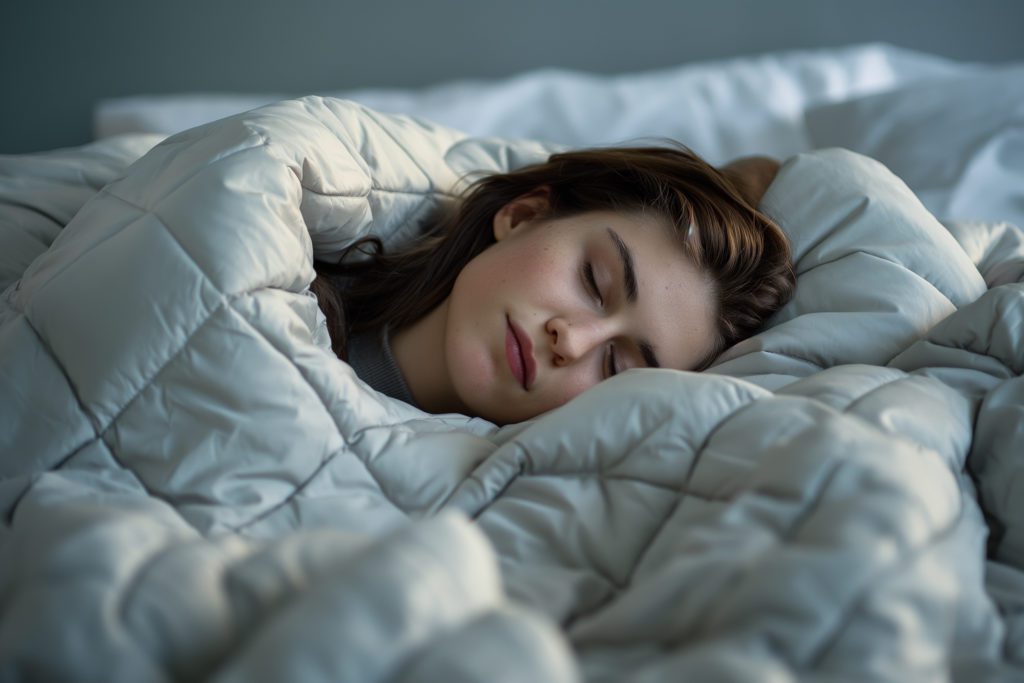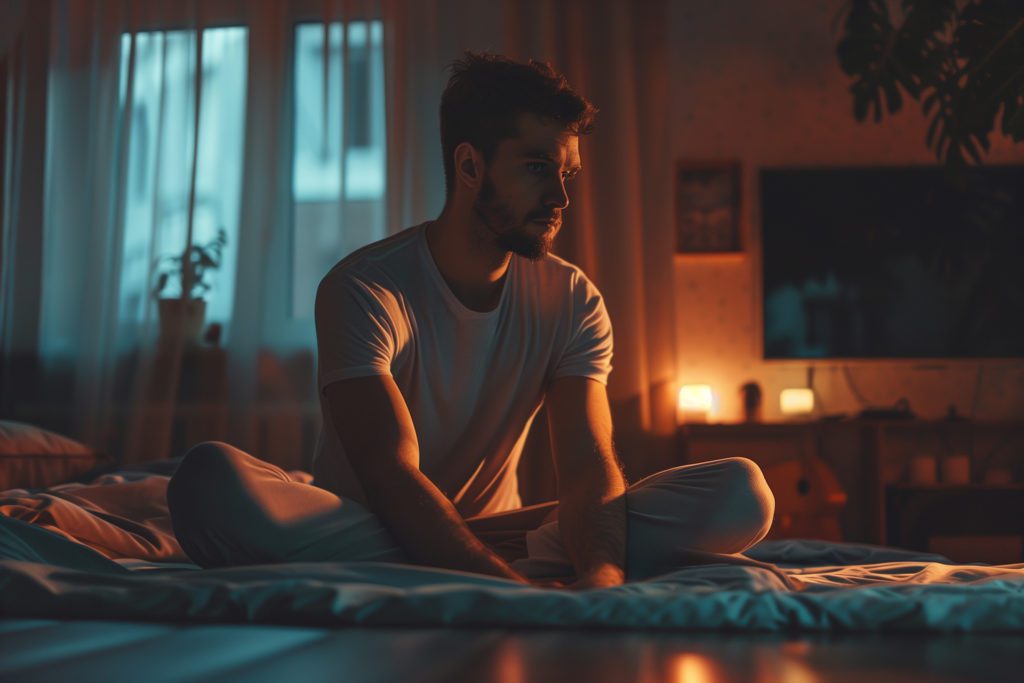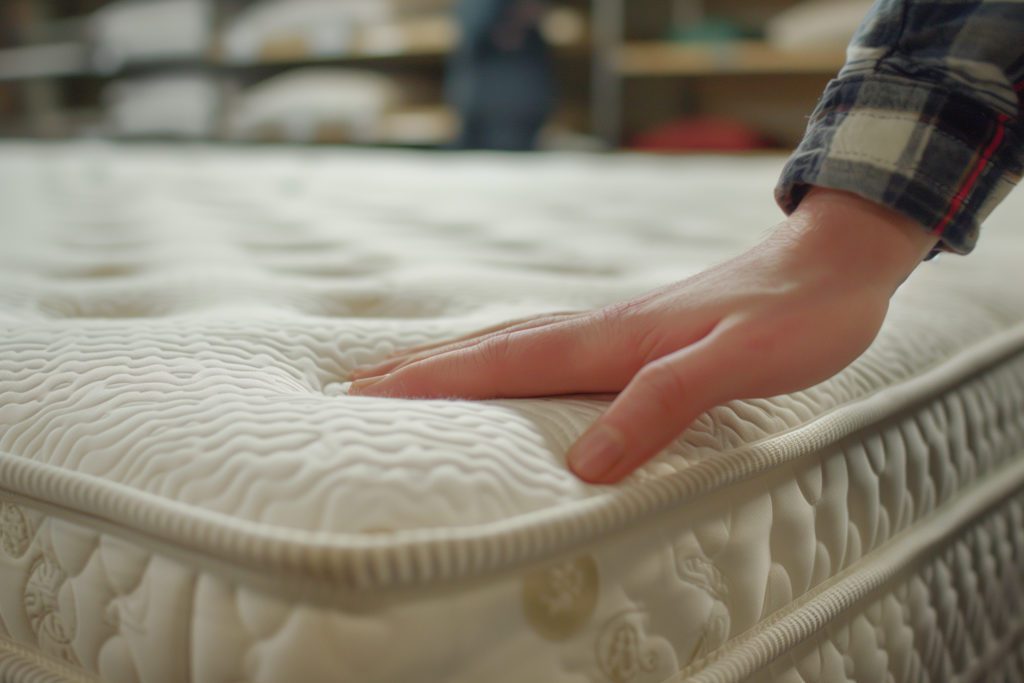
Can Poor Sleep Quality Cause Leg Cramps?
Poor sleep can cause inflammation, low pain tolerance, and dehydration, all of which may lead to leg cramps. See tips for stopping and preventing cramps

Just thinking of leg cramps may have you involuntarily reaching for your leg as reminders of how painful they can be reverberate across your memory. With their sudden and intense pain, leg cramps are undeniably unpleasant, and they can be even more frustrating when they occur during the night.
In most cases, leg cramps result from overexerting your muscles during the day or keeping them in a tense position overnight. However, how much sleep you get, while it won’t cause a leg cramp, can influence how likely you are to have one.
What Are Leg Cramps?
Have you ever wondered what causes the momentarily blinding pain seizing your legs?
Leg cramps are sudden and intense muscle pains that typically occur in the thigh, calf, or foot when the muscle unexpectedly tightens. Sometimes, they are referred to as “Charley horses,” and if the pain is severe enough, your leg may even spasm. They can last anywhere from a few seconds to several minutes, although it may feel even longer when the pain holds you in its grasp.
As for the cause of leg cramps, that can vary. Some happen with no known trigger, and the causes of these idiopathic cramps may include:
- Inadequate blood supply to a specific part of the leg muscle
- Involuntary nerve discharges
Stress - Too much high-intensity exercise
Certain medications can also have leg cramps as a side effect; if you’re taking a medication where leg cramps are a side effect and they are frequent, you can talk to your doctor about switching medications to one without this side effect.
Night Leg Cramps
When it comes to leg cramps at night, there is a bit more understanding of what can cause them:
- Overusing the muscles
- Sitting for too long (e.g., having a desk job)
- Having poor posture during the day
- Standing or working on concrete floors
- Diabetic nerve damage, kidney failure, mineral deficiencies, or issues with blood flow
When leg cramps occur at night, they’re referred to as nocturnal leg cramps. Not only are they just as painful as leg cramps that happen during the day, but they can also wake you up, leave you with a lingering soreness, and make it hard to fall back asleep. All of these complications can result in a poorer night of sleep.
While it’s clear that leg cramps can cause poor sleep quality, is the inverse true, as well?
The Link Between Poor Sleep Quality and Leg Cramps
Many times, leg cramps are confused with restless legs syndrome, a parasomnia in which someone has the irrepressible urge to move their legs due to a crawling sensation. While uncomfortable, it isn’t painful in the way that leg cramps are, and the discomfort is at least partly relieved by moving the legs. In comparison, relieving pain from leg cramps requires more time and attention.
However, the confusion between RLS and leg cramps is not entirely unwarranted—the insomnia that RLS can cause, or that you may have on your own, can cause nocturnal leg cramps. This is because insomnia is often accompanied by sleep deprivation, which can cause inflammation in the body. This inflammation can then result in cramping.
Studies have also shown that your pain sensitivity can increase when you’re sleep-deprived, meaning poor-quality sleep may make the pain from your leg cramps more intense and debilitating.
A lack of sleep can also lead to dehydration, which is a risk factor for muscle cramps. Furthermore, when you don’t get enough quality sleep, the strength of your muscles can suffer, which may also increase the risk of a cramp.
Think Fast: How to Quickly Stop Leg Cramps
When you have a leg cramp, you want relief as quickly as possible—these steps can help you get there. You may need to try all of them, or just a few may be enough to halt the cramp.
- Stretch. For a calf or foot cramp, straighten your leg, then flex your foot, bringing your toes toward your shin. For thigh cramps, pull the foot on the affected leg toward your buttock, using a chair or wall to steady yourself.
- Massage
- Stand and press your feet hard into the floor
- Apply an ice pack
- Add some heat, using a heating pad or a warm bath
- Walk around, wiggling your leg as you go
Once your cramp starts to dissipate, prop up your leg to further ease the pain.
Preventing Nocturnal Leg Cramps
Even better than knowing how to stop a cramp while it’s happening is to prevent it from ever occurring in the first place. The following can help:
Stretch
Stretching offers two benefits for leg cramps. First, it helps to ease tension held in your muscles, which has been shown to reduce cramp pain when completed before bed. Beyond leg cramps, though, stretching before bed is a very relaxing activity that can help you sleep better because it calms the mind and body and helps to prepare it for sleep.
Drink Up
Dehydration is a possible cause of cramps, so staying hydrated during the day may help to reduce the frequency of leg cramps. Even though some research suggests that dehydration may not be a cause of nocturnal leg cramps, there’s no harm in keeping yourself hydrated during the day, especially if you’re spending a lot of time outside.
Take a Bath
Surveys have revealed that some people claim taking a bath can help relieve their nighttime cramps. To boost the bath benefits even more, take a bath with Epsom salt—the magnesium sulfate that it contains could increase your magnesium levels, which may relieve leg cramping.
Yet another benefit of taking a bath is that it relaxes the body and also helps to lower your temperature when you’re finished, cueing to your body that it’s time for bed.
Adjust Your Sleeping Position
How you sleep can be a key player in your risk of nighttime leg cramps. To avoid cramps, use a pillow between your feet to keep your toes pointed upward if you’re a back sleeper. For stomach-sleepers, try hanging your feet over the edge of the bed. The goal of these positions is to keep you in a relaxed position.
Prioritize Good Sleep
With sleep deprivation potentially increasing many of the risk factors for leg cramps, getting enough good, quality sleep each night is crucial. Some ways that you can prioritize your sleep include:
- Keeping a consistent sleep schedule
- Following a relaxing bedtime routine
- Exercising during the day
- Keeping your bedroom dark, cool, and quiet
When you follow these tips, your night will be better not only because you’ll sleep better but also because your likelihood of awakening with a sharp pain in your leg will be lower.

Written by
Jessica G
Medical writer freelancer who has written hundreds of articles on varying topics. Masters of Engineering degree in Biomedical Engineering.
Download Pillow
Get help
Press & News
Legal
Connect
X (Twitter)
Company
Copyright © Neybox Digital Ltd.



